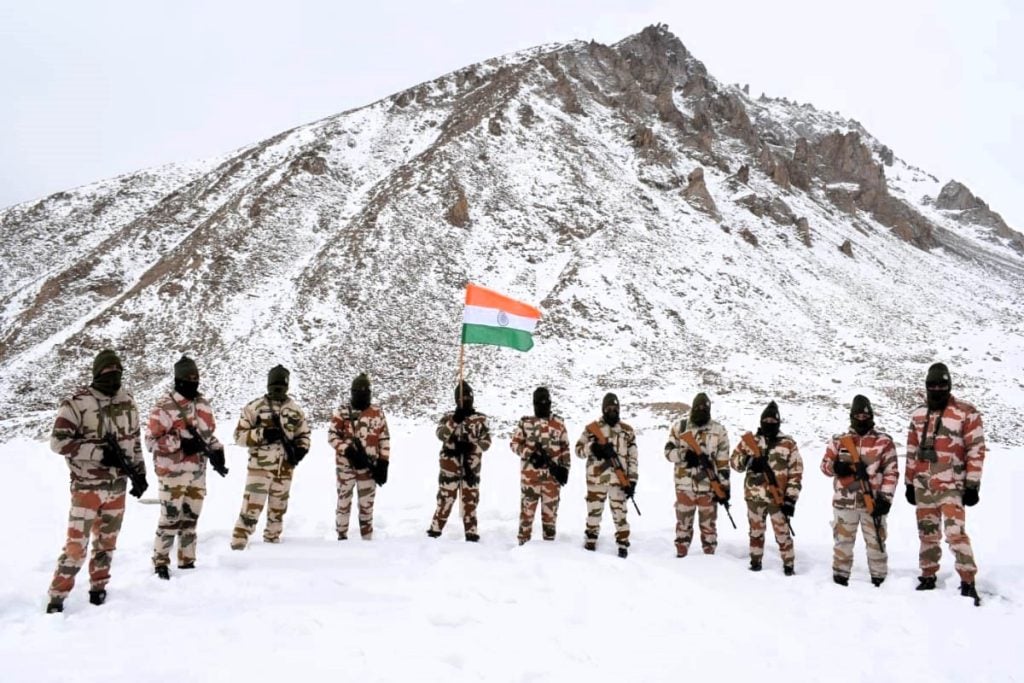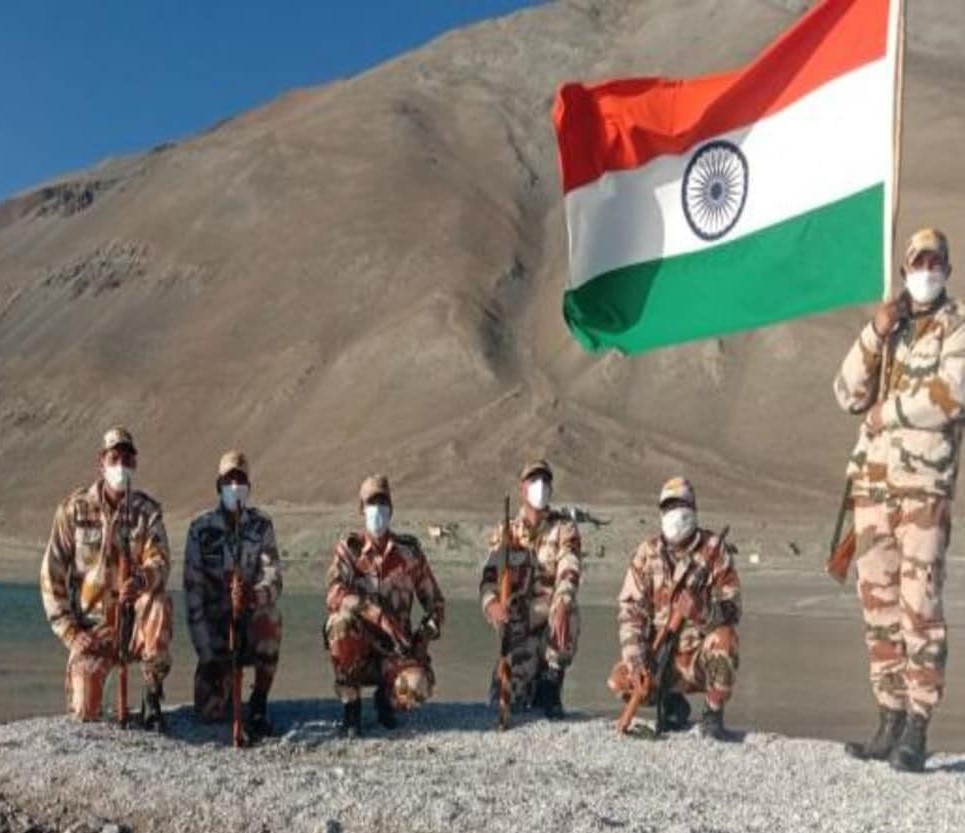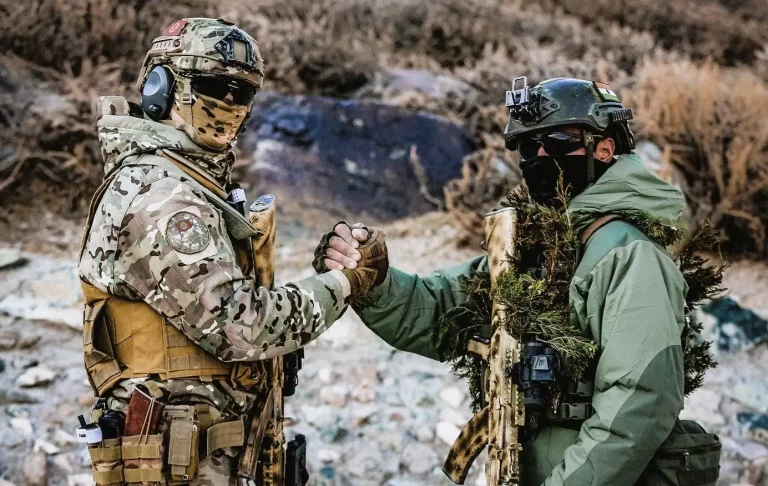The Indo Tibetan Border Police (ITBP) is a specialized armed police force entrusted with the responsibility of guarding the extensive India-China border, spanning over 3,488 kilometers from the Karakoram Pass in Ladakh to Jachep La in Arunachal Pradesh. Established in the aftermath of the Sino-Indian War, ITBP has evolved into a highly skilled and disciplined unit, earning the moniker of “Himalayan Guardians.” This comprehensive guide delves into the history, roles, responsibilities, training, career prospects, challenges, and future prospects of the ITBP.
History of Indo Tibetan Border Police
Formed on December 24, 1962, as a response to the Sino-Indian War, ITBP’s primary objective was to secure the borders in the Himalayan region. Initially comprising four battalions, its focus lay on infrastructure development and border management in the challenging terrains. Over time, ITBP expanded its roles to include disaster management and humanitarian relief operations. In 2004, it was designated as a full-fledged central armed police force under the Ministry of Home Affairs, reaffirming its critical role in safeguarding India’s borders.
Indo Tibetan Border Police : Roles and Responsibilities
Border Security
ITBP’s foremost duty is to protect India’s borders with China, operating in high-altitude areas characterized by extreme weather conditions and rugged terrains. Through regular patrolling, surveillance, and a strong presence, ITBP prevents illegal cross-border activities such as infiltration and smuggling.
Internal Security
In addition to border security, ITBP is deployed for internal security duties, particularly in regions like Jammu and Kashmir and Chhattisgarh, aiding local police in maintaining law and order and combating extremist activities.
Disaster Management and Humanitarian Relief
Drawing on its expertise in extreme climatic conditions, ITBP plays a crucial role in disaster management and humanitarian relief operations, providing assistance during natural calamities like earthquakes, landslides, and snow avalanches.
Security of Vital Installations
ITBP provides security to vital installations and projects in border areas, ensuring the safety of infrastructure with strategic importance.
Promoting Goodwill and Trust
Engaging with local border communities through civic action programs, ITBP fosters goodwill and trust among residents, enhancing cooperation in border security efforts.
International Cooperation
Collaborating with border security forces of neighboring countries, ITBP participates in joint exercises and coordinated patrolling to address common security challenges, promoting peaceful relations.
Specialized Training
ITBP personnel undergo rigorous training in mountaineering, skiing, snow survival, and high-altitude warfare tactics, equipping them to operate effectively in the harsh Himalayan terrains.
Peacekeeping Missions
Actively participating in United Nations peacekeeping missions worldwide, ITBP reflects India’s commitment to global peace and stability.
Assisting Civil Authorities
During emergencies and civil disturbances, ITBP provides support to civil authorities in maintaining law and order and restoring normalcy.
Security at Borders During Events
Ensuring the security of borders during major events is a crucial responsibility undertaken by ITBP.
Training in Indo Tibetan Border Police
ITBP personnel undergo specialized training at premier institutes like the ITBP Academy in Mussoorie, Uttarakhand. Training includes mountaineering, survival skills, combat techniques, and law enforcement, preparing personnel for the demanding tasks they face.
Difference Between ITBP and BSF
Career in Indo Tibetan Border Police
A career in ITBP offers diverse opportunities for both men and women to contribute to national security. Recruitment involves physical fitness tests, written examinations, medical evaluations, and interviews. Once selected, candidates undergo rigorous training and have opportunities for specialization, career growth, and serving in challenging terrains. Retirement benefits and pensions provide financial security post-service.
Challenges and Future Prospects
Despite commendable achievements, ITBP faces challenges in infrastructure development, personnel welfare, and logistical support. Adapting to emerging security threats and evolving technology remains crucial. However, with ongoing efforts to improve training, infrastructure, and equipment, ITBP is poised to become an even more formidable guardian of India’s borders.
In conclusion, the Indo Tibetan Border Police plays a critical role in safeguarding India’s borders in the Himalayan region. With dedicated personnel, specialized training, and modern equipment, ITBP remains at the forefront of defending India’s interests in challenging terrains. As the force continues to evolve, its contributions to national security and humanitarian efforts remain commendable and deeply valued.
FAQs
1. What is Indo Tibetan Border Police?
The Indo Tibetan Border Police (ITBP) is a specialized armed police force responsible for guarding the India-China border, particularly in the Himalayan region.
2. When was Indo Tibetan Border Police formed?
ITBP was formed on December 24, 1962, in response to the Sino-Indian War.
3. Where does Indo Tibetan Border Police operate?
ITBP operates along the India-China border, stretching over 3,488 kilometers from the Karakoram Pass in Ladakh to Jachep La in Arunachal Pradesh.
4. What training do Indo Tibetan Border Police personnel undergo?
ITBP personnel undergo rigorous training in mountaineering, skiing, snow survival, high-altitude warfare tactics, combat skills, and law enforcement at specialized training institutes.
5. What are the future prospects for Indo Tibetan Border Police?
Despite challenges, ITBP’s future prospects are promising, with ongoing efforts to improve technology, infrastructure, and personnel training. The force remains committed to safeguarding India’s borders and contributing to national security and humanitarian efforts.










